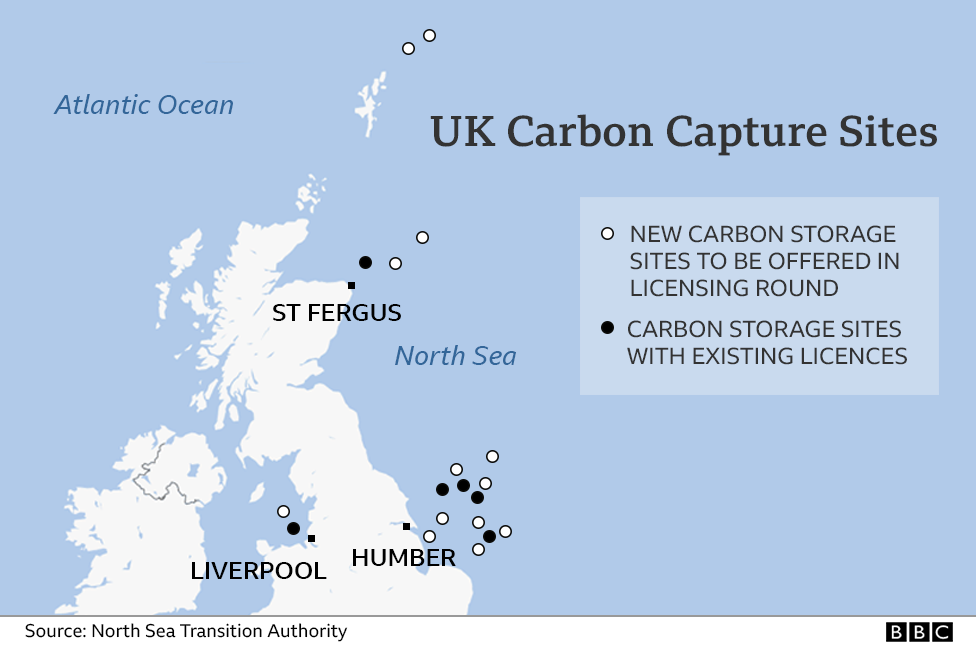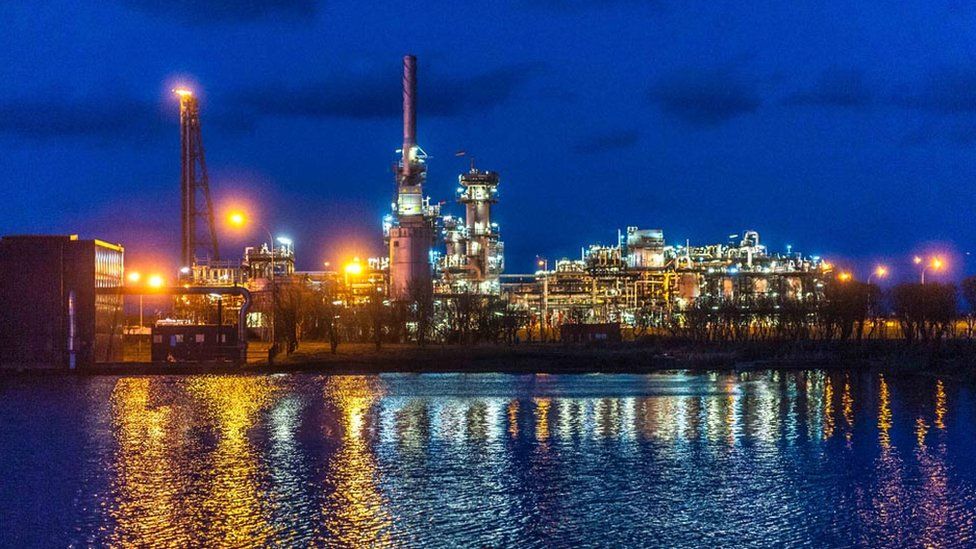BBC News 14 June 2022 - by Kevin Keane
Regulators have advertised the first formal round of licensing for seabed sites for storing captured carbon.
The technology, removing climate damaging gases from industrial sites, is seen by many scientists as important in reducing emissions to net-zero.
The 13 new sites will be in addition to six which have already been granted.
Until now prospective sites for storage have been licensed on an ad-hoc basis.
The North Sea Transition Authority (NSTA) said introducing a competitive process reflected the level of interest shown by potential licensees.
NSTA chief executive, Andy Samuel, said: "Carbon storage is going to be needed across the world.
"There is growing investor appetite and we are keen to accelerate development of the carbon storage sector so that UK is well-positioned to be a global leader."
The UK government has chosen two sites, around the Humber and Liverpool, to be the first hubs in the UK to develop carbon capture and storage.
The Scottish project - focused on St Fergus in Aberdeenshire - missed out in the first round of government backing, but has been given "first reserve" status.
The licensing process mirrors the mechanism used to licence areas for oil and gas exploration.
It will take the number of identified sites to 19, although up to 100 are expected to be needed in all.
But there are warnings about the potential for CO2 leakage if the correct sites are not chosen.
Prof John Underhill, director for energy transition at the University of Aberdeen said carbon dioxide behaves differently to oil and gas and has to be handled differently.
While welcoming the licensing announcement, he added: "It remains essential that the right sites are selected for the right reasons, something that demands a critical geological evaluation of each site.
"This technical assessment is vital and the University of Aberdeen is ready to offer its expertise, based on our leading research which is investigating the geological criteria for safe storage, the risk that legacy wells have for seal integrity and the competition for 'offshore real estate' between competing technologies like wind, gas fields and carbon stores."
'Dangerous distraction'
Friends of the Earth Scotland has long opposed carbon capture and storage, describing it as a "dangerous distraction" from the need to phase out fossil fuels.
Campaigner Ryan Morrison added: "Public money would deliver more jobs, faster emissions cuts and bigger boosts to wellbeing if it was invested in a range of renewables and energy efficiency measures instead of being wasted on more illusory carbon capture projects.
"This industry has a long history of over-promising and under-delivering. Politicians and CCS backers in the fossil fuel industry want us to trust our future with a technology that has shown repeatedly it cannot be relied upon."


